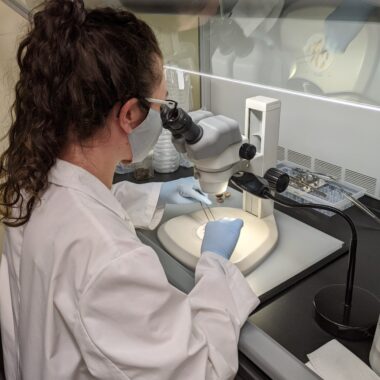
As part of a global strategy to conserve plant species, the K.C. Irving Centre seeks to establish “ex situ” or off-site collections of native species within the Acadian Forest Region. One approach to ex situ conservation is through the collection, desiccation and storing of seeds at -20 C, as part of the “Acadia Seed Bank”.
Northern red oak is a native tree species of interest for ex situ conservation. It is valued as a source of high-quality wood, and is an important source of food and shelter for animals. Natural rates of regeneration have been low due to various factors such as past logging pressures, forest succession dynamics and suppression of forest fires. However, this species poses a special challenge for seed banking. The seeds of red oak are considered “recalcitrant”, which means they do not tolerate desiccation and conventional freezing storage at -20 C.
Researchers at the K.C. Irving Centre are therefore investigating alternative biotechnological approaches to ex situ conservation of red oak. This research will explore the potential of tissue culture and cryogenics to propagate and store valuable red oak germplasm. Trials are underway to determine methods for initiating embryonic tissue cultures.


 Acadia University
Acadia University